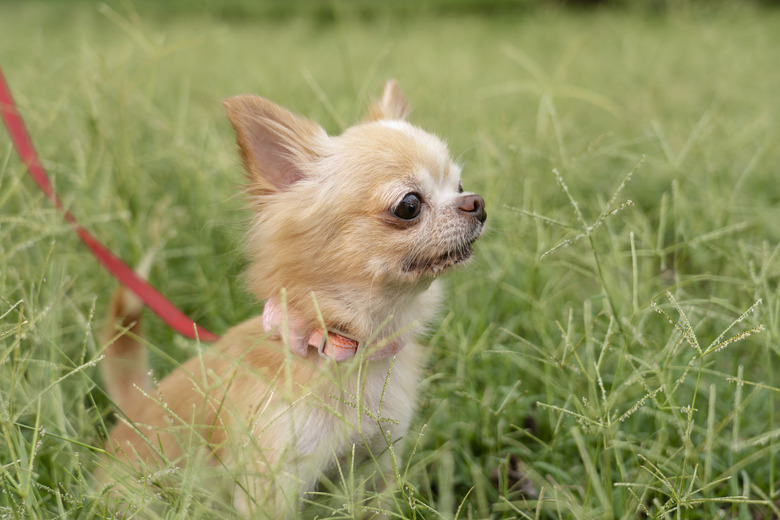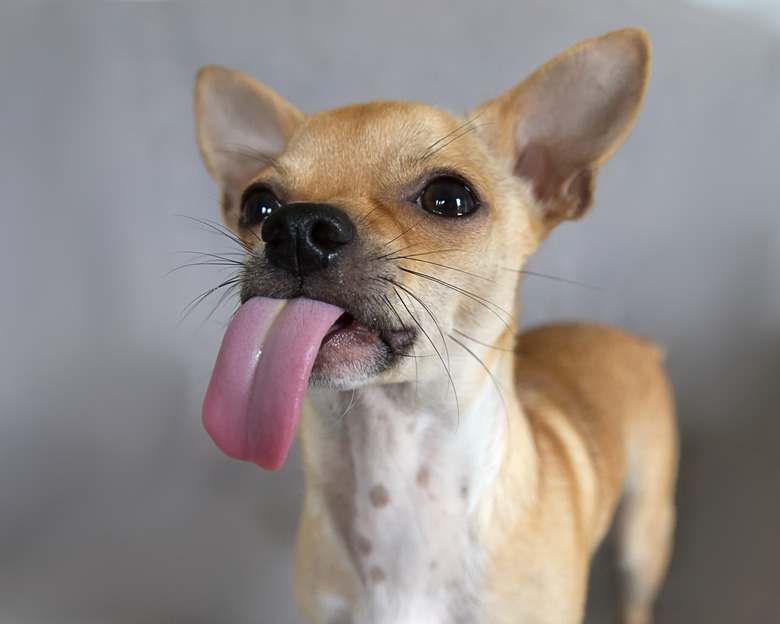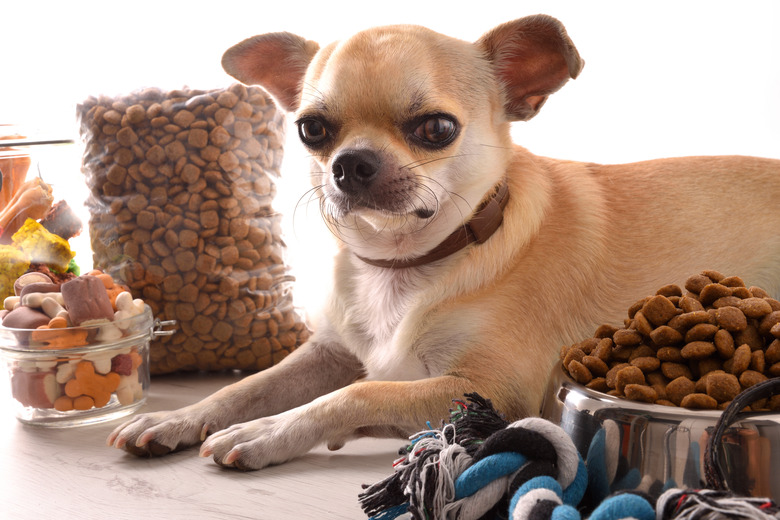The Best Dog Foods For Chihuahuas
Weighing between 3 and 6 pounds, Chihuahuas are often affectionately described as "tiny but mighty." These pint-size pups have a big personality and are full of energy. Due to their size and energy level, Chihuahuas have slightly different nutritional requirements than other dog breeds. Choosing the best dog food for a Chihuahua is an important decision.
Chihuahua nutritional needs
Chihuahua nutritional needs
The minimum requirements for fat, protein, vitamins, and minerals tend to be the same for most dog breeds, but nutritional needs can vary for some sizes of dogs and throughout different life stages.
It's best to talk with your vet about your Chihuahua's dietary needs, as age, health history, and exercise level are all important factors for determining the best foods for a Chihuahua. For a general idea of a dog's caloric needs, a calorie calculator gives an average recommended daily intake of about 30 calories per pound of body weight. Smaller dogs have a higher metabolism, which can sometimes mean they need more calories than the feeding recommendation on a dog food bag. Chihuahuas can easily become overweight, though, so the number of calories they need each day should be carefully determined.
Chihuahuas have a small stomach and short digestive tract, so they can't eat big meals in one sitting. Chihuahua puppies need more calories and should be fed smaller meals four to six times a day instead of the standard two. As they age into adults, the frequency may need to be adjusted depending on their development and weight.
Different life stages
Different life stages
Dogs have different nutritional needs throughout their life. Commercial dog food is divided into options for puppies, adults, and seniors. Puppies need higher levels of protein in their diet to aid in healthy growth and development, and Chihuahua puppies specifically need to maintain adequate fat and calorie intake to prevent hypoglycemia.
Adult Chihuahuas need a balanced diet that gives them enough protein and calories to power them throughout the day without contributing to weight gain. Food for seniors is formulated with extra vitamins and is lower in calories to account for the slower metabolism and reduced exercise level of older dogs.
What to look for in a dog food
What to look for in a dog food
When looking for dry food for a Chihuahua of any age, ones made specifically for small breeds are a good option, as the kibble pieces are smaller. Check the label for guaranteed minimums of fat and protein or look for an AAFCO statement of nutritional adequacy. Next, check the ingredients. A few things to look for include:
- Animal protein as the first ingredient (meat, poultry, or fish)
- Higher than average fat content (at least 15 percent, ideally 18 to 22 percent)
- Digestible carbohydrates (whole grains, low-starch veggies)
- No artificial additives (synthetic dyes, flavorings)
Calorie content varies across dog food brands, so crunch the numbers to be sure a particular food can be fed in the proper amount while meeting your Chihuahua's caloric intake needs.
Best dog food for Chihuahuas
Best dog food for Chihuahuas
Opinions vary, but some Chihuahua parents swear by particular brands. Royal Canin, Purina ProPlan, Wellness, and Nulo are popular commercial foods that are easy to find in stores or online. Smaller regional brands can also be a good option if the ingredient lists check out.
Some dog parents opt for a raw or homemade diet, but be sure to ask your vet if either are a good fit for your dog's nutritional needs. Commercial dog foods are formulated to meet your dog's nutritional requirements, and it can take some knowledge and effort to meet these requirements with a raw or home-cooked diet. Alternatively, choosing a quality dog food and supplementing with cooked, unseasoned meat and veggies can be a good source of extra vitamins and a tasty addition to your pup's usual meals.
References
- The Ohio State University Veterinary Medical Center: Basic Calorie Calculator for Dogs and Cats
- Dog Food Advisor: AAFCO Dog Food Nutrient Profiles
- The Canadian Veterinary Journal: Hypoglycemia In Dogs: Causes, Management, and Diagnosis
- Rover: The 11 Best Dog Foods For Chihuahuas In 2021
- Hepper: 9 Best Dog Foods For Chihuahuas In 2022 – Reviews & Top Picks


